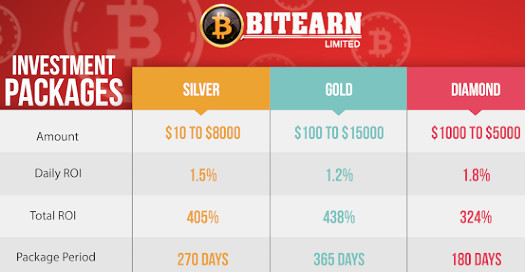BitpaxOSGlobal Review: 110% hourly ROI Ponzi scheme
![]() BitpaxOSGlobal provides no information on its website about who owns or runs the company.
BitpaxOSGlobal provides no information on its website about who owns or runs the company.
BitpaxOSGlobal’s website domain (“bitpaxosglobal.com”) was registered on March 23rd, 2020.
Bitearn LTD is listed as the owner, through a residential address in Brooklyn, New York.
BitEarn is a collapsed Ponzi scheme from 2018 run by a person or persons unknown.

As always, if an MLM company is not openly upfront about who is running or owns it, think long and hard about joining and/or handing over any money.
BitpaxOSGlobal’s Products
BitpaxOSGlobal has no retailable products or services, with affiliates only able to market BitpaxOSGlobal affiliate membership itself.
BitpaxOSGlobal’s Compensation Plan
BitpaxOSGlobal affiliates invest funds on the promise of an advertised ROI:
- Plan 1 – invest $100 or more and receive 104% after 24 hours
- Plan 2 – invest $500 or more and receive 107% after 24 hours
- Plan 3 – invest $1500 or more and receive 130% after 24 hours
- Plan 4 – invest $5000 or more and receive 110% after 60 minutes
BitpaxOSGlobal pays referral commissions on funds invested down two levels of recruitment (unilevel):
- 10% on level 1 (personally recruited affiliates)
- 5% on level 2
Joining BitpaxOSGlobal
BitpaxOSGlobal affiliate membership is tied to a minimum $100 investment.
Conclusion
BitpaxOSGlobal represents it generates external revenue via “bitcoin mining”.
No evidence of mining taking place or any source of external revenue being used to pay returns is provided.
Furthermore, BitpaxOSGlobal’s business model fails the Ponzi logic test.
If BitpaxOSGlobal’s owner was capable of consistently generating a 110% ROI every hour, what on Earth do they need your money for?
As it stands the only verifiable source of revenue entering BitpaxOSGlobal is new investment.
Using newly invested funds to pay existing affiliates a ROI makes BitpaxOSGlobal a Ponzi scheme.
As with all MLM Ponzi schemes, once affiliate recruitment dies off so too will new investment.
This will starve BitpaxOSGlobal of ROI revenue, eventually prompting a collapse.
The math behind Ponzi schemes guarantees that when they collapse, the majority of participants lose money.


Great & another 3rd one. Seems like the exact same FAKE admin that run 21BitCoinStash.com & a few months after this one started a 2nd one.
I Forgot the 2nd one’s name that was also based on the 110% hourly ROI Ponzi scheme as well. So was 21BitCoinStash.com!
– These scamming admins don’t give up. Well I did, & I earned HUNDREDS (or rather saved) of dollars by retiring from these scam filled MLM network income opportunities.
And by not making these scammers rich any longer. Thanks.
Is a big scam.No transparency, they find new excuses to ask for more money.